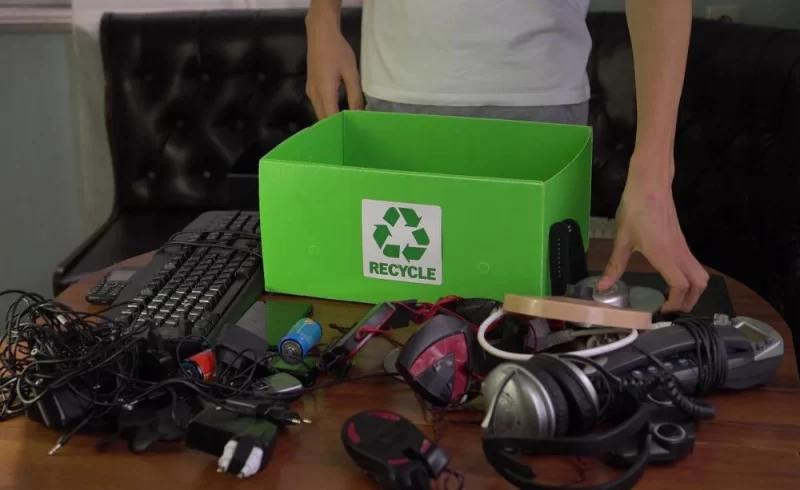By Lauren Jessop | The Center Square contributor
(The Center Square) – It’s not easy being green when it comes to recycling electronic devices in the state of Pennsylvania and one lawmaker wants to change that.
Difficulty in finding information on drop-off locations, inconvenient or limited schedules, and additional fees may all contribute to improper disposal of devices. A proposed bill by Rep. Lisa Borowski, D-Newtown Square, would update the state’s Covered Device Recycling Act to create solutions for those seeking to responsibly dispose of their unwanted electronic waste.
The CDRA – passed by the General Assembly in 2010 – requires manufacturers of covered devices to offer collection opportunities at no cost to consumers. However, Borowski says the system has failed to keep pace with the demand.
She said the existing program inhibits many Pennsylvanians from disposing of their electronics properly and has resulted in the accumulation of unusable electronic devices within households across the state.
Residents and businesses are prohibited from placing these devices in the regular trash, but they end up being improperly disposed of in landfills, or illegally dumped – creating potential health and environmental hazards and neighborhood blight.
“Currently there are no statewide standards for the responsible disposal of electronics, just a patchwork of county and local government options that leave individuals to sort it out on their own,” Borowski told The Center Square.
She said as a former township commissioner, she knows all too well the confusion, inconvenience, and costs this creates.
“My bill will simply require a nominal deposit at the time of purchase, guaranteeing the ability of folks to have these items disposed of properly, at their convenience, at no further cost,” Borowski said.
Borowski’s bill would allow counties throughout the state to participate in a collaborative, self-sustaining system comprised of the manufacturing, recycling, and retail industries, as well as local government and the Pennsylvania Department of Environmental Protection, giving residents “access to convenient collection sites at no cost to themselves or their municipalities.”
Currently, manufacturers of covered devices are required to provide recycling at no cost to consumers, but the amount they are required to collect is based on the weight of devices sold two years prior to the year for which the weight is being reported.
Newer electronics are lighter, so the weight requirements decrease every year. This creates a problem when older, heavier items are recycled, and manufacturers can suspend their programs when the limit is reached.
In 2021, the Pennsylvania DEP presented a white paper to the Solid Waste Advisory Committee citing a need for better electronics recycling and suggesting ways the state can provide the greatest benefit to residents and the environment.
They recommend manufacturer programs be shifted from weight-based to a return or market share system that does not come from taxes or fees on consumers or local governments, and that enforcement authority could be improved by creating more explicit standards for compliance.
In addition, the report states they do not believe the DEP should play a role in overseeing contracts involving the coordination of 67 counties and thousands of local governments. While there is logic in central management, it would require a significant increase in staff and a transformation of its role and workload.
According to the U.S. Environmental Protection Agency, consumer electronics may contain hazardous materials such as lead, cadmium, and mercury. For every million cell phones recycled, 35,000 pounds of copper, 772 pounds of silver, 75 pounds of gold, and 33 pounds of palladium can be recovered.
“These items cannot just be tossed in the trash. They must be safely handled. We all pay for it in some form or fashion now,” Bowowski said. “Structuring and streamlining this will result in a simpler and less costly process. Simply put, we need to make it easier for people to recycle electronics. This bill gets us there.”
